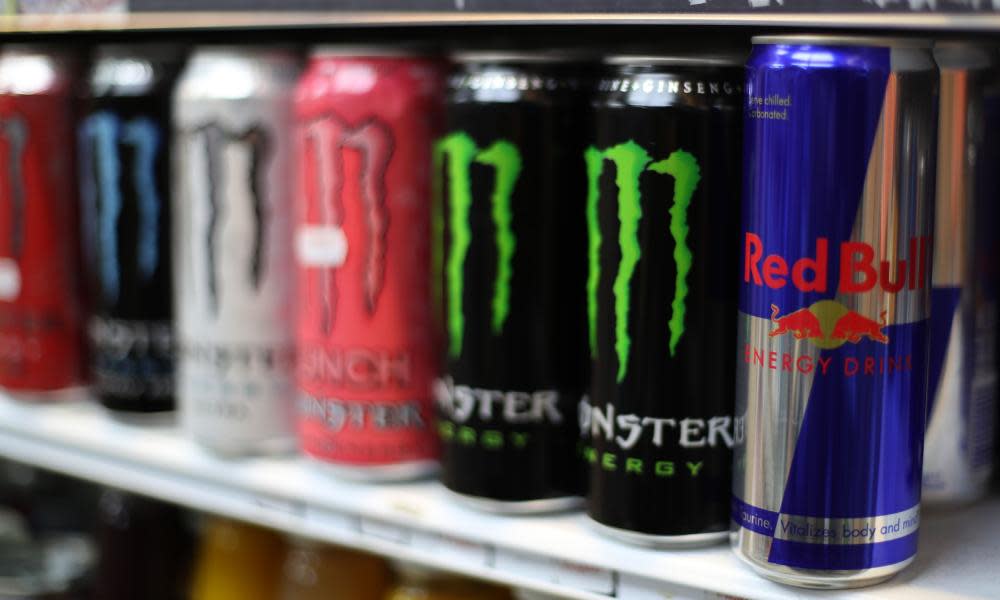Set age ban on sale of energy drinks at 18, government told

Childrens’ health campaigners and teachers have joined forces to urge the government to set its proposed ban in England on the sale of energy drinks to youngsters at 18 rather than 16.
The Children’s Food Campaign (CFC), which is supported by the chef Jamie Oliver, the British Dietetic Association and the Action on Sugar campaign group, believe an under-18 ban would be the most effective way to help schools and colleges tackle behavioural issues linked to drinking the high-caffeine fizzy drinks, which include Red Bull and Monster Energy.
An online survey of teachers by the CFC shows 97% of teachers supported introducing a ban on sales of the drinks to children and young people. Two-thirds (64%) said that their schools neither sold nor allowed the consumption of the drinks on site, but young people still bought and drank them on their way to and from school – or smuggled them into school in schoolbags – which is why they are pressing for sales to be prohibited to an older age group.
The government supports a ban on the sale of energy drinks and a Department of Health consultation on implementation, launched at the end of August, closes on Wednesday. The principal question still to be determined is whether the purchasing restrictions will apply at the age of 16 or 18.
The main reason for the ban is the high level of caffeine in the drinks, which has been linked to a string of health problems for children, including head and stomach aches, hyperactivity, depression and sleep problems, as well as poorer performance, concentration and behaviour in schools.
A 250ml can of Red Bull contains about 80mg of caffeine, roughly the same as a similarly sized cup of coffee but three times the level of Coca-Cola. Monster Energy is often sold in larger cans of 500ml that contain 160mg of caffeine.
While most major supermarkets and retailers have this year introduced voluntary bans to stop selling the drinks to under-16s, teachers said young people were still buying them from convenience shops on the way to school or from vending machines, which demand no proof of age. The supporters of the under-18 ban say it would have a greater impact, given that the highest level of consumption of energy drinks by children is between 16 and 17.
“These high-caffeine fizzy drinks are not energising pupils in the classroom; it’s actually the opposite” said Barbara Crowther of the Children’s Food Campaign. “Hard-working teachers have a tough enough job without having to manage youngsters’ health and behavioural effects. We are calling on the government to ban all sales to under-18s, which will send the clearest message that these drinks – as it already says on the label – are just not suitable for children.”

 Yahoo News
Yahoo News 
